Picture this: you’re minding your own business when suddenly, you’re cornered by that one person who always seems to have their nose in everyone’s business. They start peppering you with invasive questions about your personal life, leaving you feeling trapped and uncomfortable. Sound familiar? If so, you’re not alone. Dealing with nosy people is a common challenge that many of us face, whether it’s in the workplace, at family gatherings, or in social settings.
But here’s the good news: you don’t have to put up with it. As someone who’s navigated my fair share of awkward encounters with overly inquisitive folks, I’ve learned that there are plenty of effective strategies for shutting down nosy behavior and protecting your privacy. And today, I’m going to share some of my best tips and comebacks with you.
The Psychology of Nosiness
Before we dive into the practical stuff, let’s take a moment to explore the psychology behind nosy behavior. What drives some people to constantly pry into others’ personal lives?
According to psychologists, there are a few key factors at play:
- Insecurity: Often, people who are insecure about their own lives will try to deflect attention by focusing on others. By asking invasive questions, they can temporarily distract themselves from their own problems and insecurities.
- Lack of boundaries: Some people simply don’t understand or respect the concept of personal boundaries. They may have grown up in a family or culture where privacy wasn’t valued, or they may struggle with social cues and norms.
- Need for control: In some cases, nosiness can be a way of exerting control over others. By gathering personal information, the nosy person feels like they have the upper hand in the relationship.
- Misguided attempt at connection: Believe it or not, some nosy people actually think they’re being friendly or helpful by asking personal questions. They may not realize how intrusive their behavior is.
Understanding the underlying motivations behind nosy behavior can be helpful when it comes to crafting your response. It allows you to approach the situation with empathy and tact, rather than just reacting out of frustration.
Set and Communicate Clear Boundaries
One of the most effective ways to deal with nosy people is to establish clear boundaries from the outset. This means communicating what you are and aren’t comfortable sharing, and sticking to those limits consistently.
For example, let’s say a coworker starts asking about your salary or financial situation. You might say something like:
“I appreciate your interest, but I make it a policy not to discuss personal finances at work. I believe it’s important to keep professional and personal matters separate. Let’s focus on the project at hand, shall we?”
Or perhaps a family member is constantly prying into your love life. You could try a response like:
“I know you care about me and want me to be happy, but I really don’t feel comfortable discussing my dating life in detail. When I have news I’m ready to share, I promise you’ll be one of the first to know. In the meantime, how about we talk about [change the subject to something neutral]?”
The key is to be firm, clear, and consistent. If you give in and share personal details just once, the nosy person will likely see that as an invitation to keep pushing. By setting boundaries early and often, you send a clear message that your personal life is off-limits.
Use Humor to Deflect and Disarm
In some situations, a little humor can go a long way in deflecting nosy questions and lightening the mood. When delivered with a friendly tone and a smile, a clever quip can diffuse tension and make it clear that you’re not interested in sharing personal details.
Here are a few examples:
- “Wow, you’re more interested in my life than my therapist! Should I put you on my insurance plan?”
- “I could tell you, but then I’d have to swear you to secrecy. And I don’t think either of us wants to deal with that kind of paperwork.”
- “Oh, you know, just living the dream, one spreadsheet at a time. But enough about my glamorous life – how’s your stamp collection coming along?”
The goal is to keep things playful and light while still sending a clear message that you’re not going to dish out personal information. And who knows – you might even get a laugh out of the nosy person in the process.
Turn the Tables on Them
Another way to shut down nosy questions is to flip the script and turn the tables on the person asking. This can be an effective way to point out the inappropriateness of their questions and make them think twice about prying in the future.
For example:
- Them: “So, I heard you got passed over for that promotion. What happened?” You: “Wow, sounds like you’ve got quite the inside scoop! I’m curious, who’s your source? I’d love to have a chat with them about respecting confidentiality.”
- They: “How much did you pay for your new car? It looks expensive.” You: “Gosh, I didn’t realize we were swapping financial details! In that case, how much do you have saved up for retirement? I’m always looking for budgeting tips.”
- Them: “Are you pregnant? Your belly looks a little bigger than usual.” You: “Oh, are we doing unsolicited body commentary today? In that case, have you ever considered seeing a dermatologist about that rash on your neck?”
The key here is to keep your tone light and friendly, even as you’re calling out the other person’s behavior. You don’t want to come across as aggressive or confrontational – the goal is simply to hold up a mirror and show them how it feels to be on the receiving end of invasive questions.
Be Direct and Assertive
Of course, there may be times when humor and deflection aren’t enough, and you need to be more direct in your approach. This is especially true if you’re dealing with someone who consistently oversteps boundaries or doesn’t seem to be getting the hint.
In these cases, it’s important to be clear, concise, and assertive in your communication. For example:
“I understand that you’re curious about my personal life, but I really don’t feel comfortable discussing those details at work. Let’s keep our conversations focused on professional matters, okay?”
Or:
“I’ve noticed that you ask a lot of questions about my dating life, and it’s starting to make me uncomfortable. I’d appreciate it if you could respect my privacy and not bring it up anymore.”
It can be intimidating to confront someone directly, especially if you’re not used to being assertive. But remember: you have every right to set boundaries and protect your privacy. By speaking up calmly and confidently, you’re not only standing up for yourself – you’re also modeling healthy communication skills for those around you.
Minimize Oversharing and Be Mindful of Context
Of course, one of the best ways to avoid nosy questions is to be mindful of how much personal information you share in the first place. This doesn’t mean you have to be a closed book – it’s healthy and natural to share parts of yourself with others. But it’s also important to be discerning about what you share, and with whom.
Before you divulge personal details, ask yourself:
- Is this information relevant and appropriate to share in this context?
- Do I trust this person to respect my privacy and boundaries?
- Am I sharing for the right reasons, or am I just seeking validation or attention?
It’s also a good idea to be mindful of your online presence and how much personal information you share on social media. Even if you have your privacy settings locked down, there’s always a chance that someone could screenshot or share your posts without your knowledge.
The bottom line? Share what feels authentic and comfortable to you, but don’t feel pressured to overshare just because someone is asking. Your personal life is yours to share (or not share) on your own terms.
Remember: You Don’t Owe Anyone an Explanation
At the end of the day, it’s important to remember that you don’t owe anyone an explanation or justification for your personal choices or boundaries. Your life is your own, and you have every right to protect your privacy.
If someone pushes back against your boundaries or takes offense to your assertiveness, try not to take it personally. Their reaction says more about them than it does about you. Stay firm in your convictions and trust your gut – you know what’s best for you.
And if all else fails, just remember: you can always fall back on the classic line, “I’d love to chat more, but I have to go floss my cat’s teeth.” That’ll definitely shut down any further questions.
Key Takeaways
- Nosy behavior is often driven by insecurity, lack of boundaries, a need for control, or misguided attempts at connection.
- Setting clear, consistent boundaries is key to shutting down nosy questions and protecting your privacy.
- Humor, deflection, and turning the tables can be effective strategies for dealing with nosy people.
- If needed, be direct and assertive in your communication. You have every right to protect your personal information.
- Be mindful of how much you share, both in person and online. Share what feels authentic and comfortable to you.
- Remember: you don’t owe anyone an explanation or justification for your boundaries or personal choices.
Dealing with nosy people can be challenging, but with the right tools and mindset, you can navigate even the most awkward encounters with grace and confidence. Trust your instincts, communicate your needs clearly, and don’t be afraid to stand up for yourself. You’ve got this


